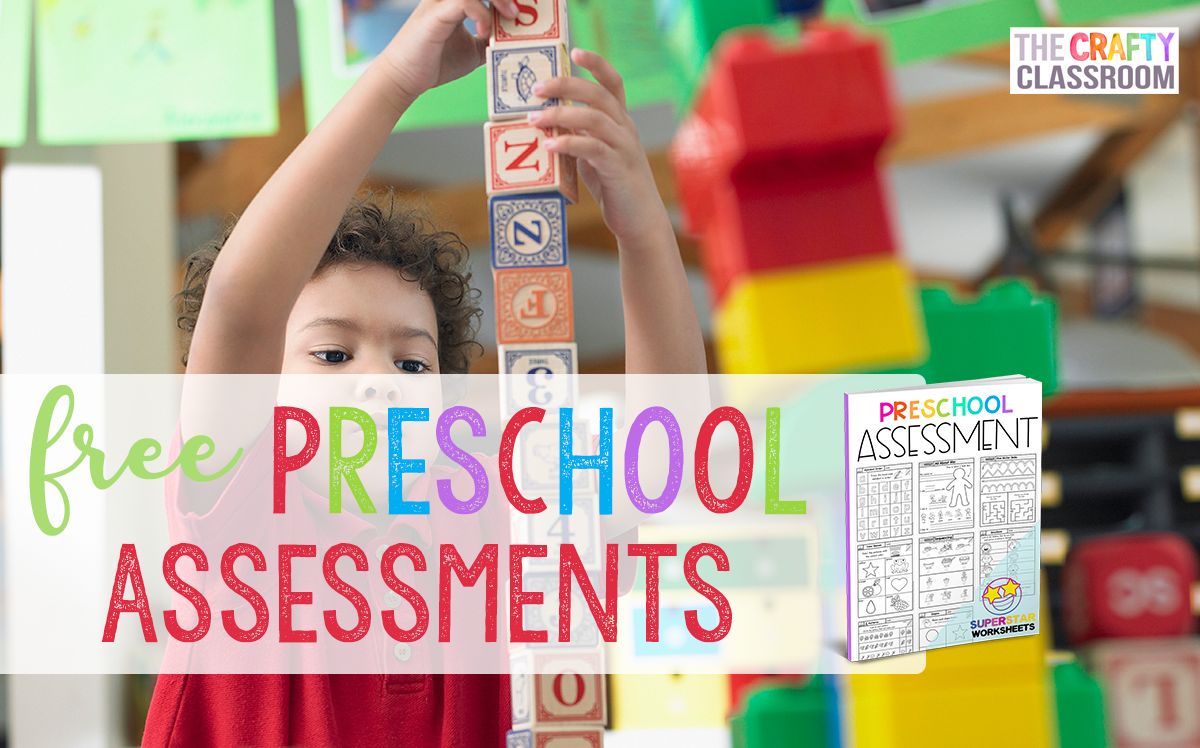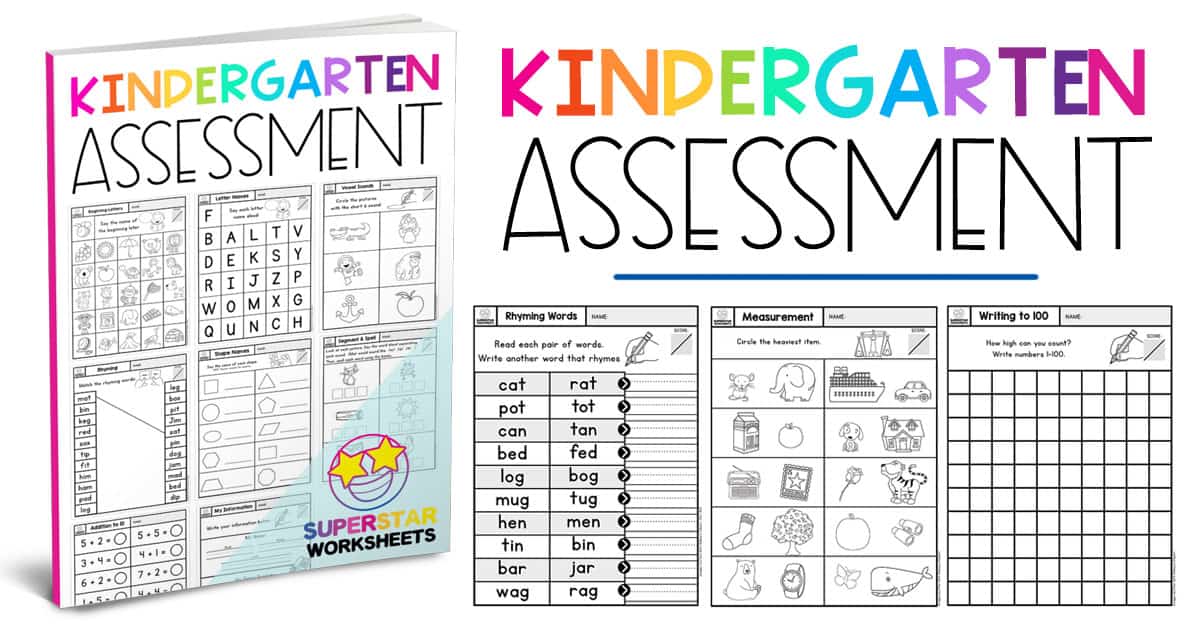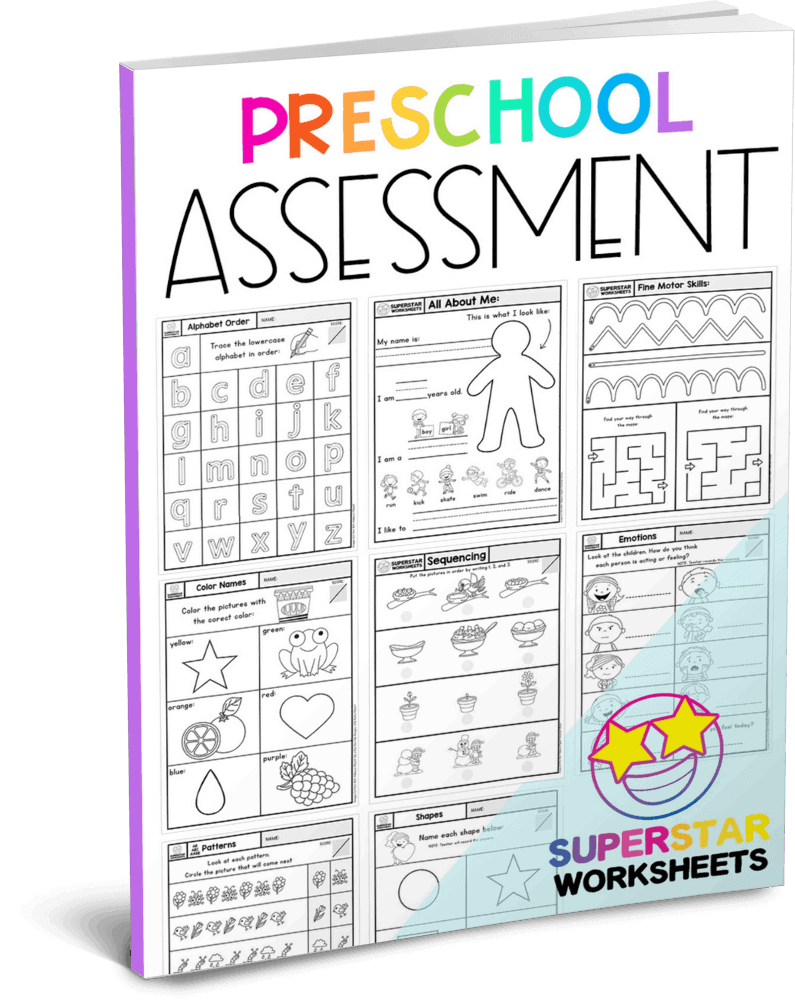Preschool Assessment
Preschool has become an important part of early childhood. We want our children to have the best start. Preschool offers a fun way to introduce the concept of school while teaching foundational skills. How do you know if you are doing enough though? What should a preschooler know, anyway? Also, how can you measure progress in preschool? All of these are great questions, and the answer is a Preschool Assessment!

Why Do a Preschool Assessment?
Before you start planning for timed tests and sharpening pencils, let’s chat about what a preschool assessment is! First of all, an assessment is not necessarily a test. It also does not have to be a standardized format. Preschool assessments are simply a way to gauge how a child is doing. It shows the teacher how much he knows, what he still is working on, and concepts that are too difficult at this point. Doing a simple assessment will help you decide what your preschooler needs to learn, this will lead to a more productive and enjoyable homeschool experience.
When Should I Do a Preschool Assessment
Assessments are planning tool and also allow you to see progress. They are not graded, so do not see them as a final exam. You can give a preschool assessment at any time, however here are some best uses for one:
- Administer the same assessment at the beginning of the year and toward the end.
- Give an end of year assessment to decide what curriculum to choose for next year.
- Let the assessment be a baseline for your homeschool, see where you child is before you start anything for the year.
- Wait until mid-year to give the first assessment. Use the results to drive your spring learning plans and then again at the end of the year to see the improvement.
What Should a Preschooler Know?
Young children have a wide variety of abilities and timetables for learning. There is no set schedule for what to learn when. However, there are some core skills that are age appropriate. Each of these topics is what the core subjects of school are built upon. A preschool assessment will focus on reading/phonics skills, math and counting skills, and pen control. Also, it is important to assess social and emotional skills for preschoolers.
Reading Preparedness Skills to Assess
Reading is a fundamental skill that is the building block of all learning. It is an essential skill for school and future learning. That is why it usually the main focus of preschool and early elementary lessons. That said, children develop at different rates and reading is dependent more on readiness than age. So, these skills will give you an idea of how ready your child is for reading, but are in no way an indication of future performance.
- Letter recognition
- Sight words
- Phonics/letter sounds
- Basic word writing and sentence formation

Math Topics to Assess
Math is the other key building block to learning. Gaining confidence in math will drive your child’s ability. At this young age, math concepts are very basic. Recognition is the most important skill. Recognizing shapes and numbers is crucial. Again, children develop at different rates. Here is a list of skill to assess:
- Shape Recognition
- Color Recognition
- Seasons
- Months
- Days of the Week
- Number Recognition
- Counting
- Sequencing
- Patterns
- Writing numbers
- Addition with +1
- Subtraction with -1
Other Skills to Assess:
- Right and Wrong
- Feelings
- Good vs Bad

